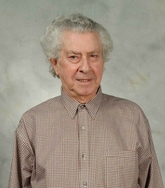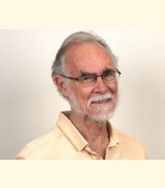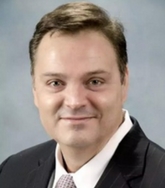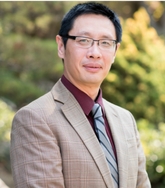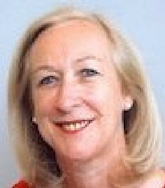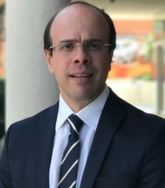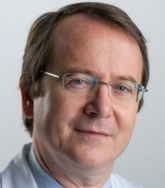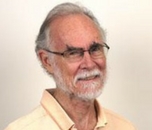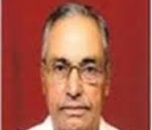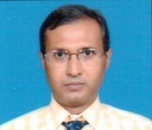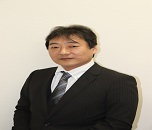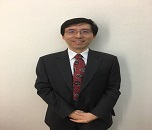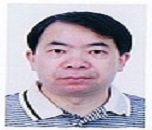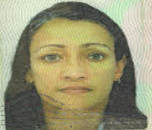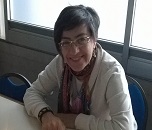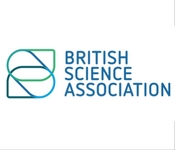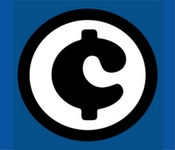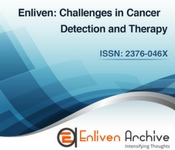
Cancer Therapy 2018

Theme: Exploring Therapeutics for Cancer Cure
Cancer Conference | Cancer Therapy Conference | Cancer Therapy Congress | Cancer Science Conference | Oncology Conference | Cancer Science Workshop | Meetings Int
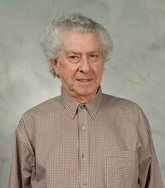
Dear All,
It gives me great pleasure to extend to you all a very warm welcome to Cancer Therapy 2018. We have entered a completely new phase in our efforts to cure cancer, as we now have at our therapeutic disposal novel ways to enlist the body’s own T cells in the fight against cancer. Our basic work on thymus immune function, T and B cell antigen recognition, T cell activation, and T cell costimulation, has led to the invention of checkpoint blockade and chimeric antigen receptor T cells. Immunology has certainly spawned immunotherapy which is claiming a seat in the therapeutic pantheon of oncology, next to and perhaps, or hopefully, eventually superseding surgery, radiation therapy, and chemotherapy. Welcome everybody!
Session 1: Oncology Nursing
The goal of such therapy is not to cure but to improve quality of life for both the person and their family. Evidence as of 2016 supports improvement in quality of life. It focuses on providing people with relief from the symptoms, pain, physical stress, and mental stress of the terminal diagnosis in life limiting diseases like Cancer. Medications and treatments are found to have a palliative effect if they relieve symptoms without having a therapeutic effect on the underlying disease or cause. Given in addition to cancer treatment, when a patient reaches a point where cure is not warranted, palliative care becomes the sole focus of care. The respective session of the Cancer Therapy Conference will deal with issues like the difference between hospice care and palliative care, oncology nursing, pain management, psychosocial and emotional care on a spiritual level.
Related Conferences: NCRI Cancer Conference, November 4-6, 2018, Glasgow, UK; 4th International Conference on Palliative Care and Hospice Nursing, August 27-28, 2018, USA; 5th World Congress on Hospice and Palliative Care, July 16-17, 2018, Australia; 22nd International Congress on Palliative Care, October 2 - 5, 2018, Canada; MNHPC 2018 Annual Conference, April 8-10, 2018, USA; 25th International Conference 2018, Indian Association of Palliative Care, February 23 -25, 2018, India; Mayo Clinic Principles of Pain Management and Palliative Care 2018, March 5-9, 2018, USA; International Conference on Brain Stimulation, November 26-27, 2018, Japan; German Society for Pain Medicine Pain and Palliative Day 2018, March 8-10, 2018, Germany; American Academy of Hospice and Palliative Medicine & Hospice and Palliative Nurses Association Annual Assembly 2018, March 14-17, 2018, USA.
Related Associations: American Academy of Hospice and Palliative Medicine (AAHPM), USA; American Board of Hospice and Palliative Medicine (ABHPM), USA; The Canadian Hospice Palliative Care Association (CHPCA), Canada; Caring Connections, UK; Center to Advance Palliative Care (CAPC), USA; European Association for Palliative Care, Spain; European Organization for Research and Treatment of Cancer (EORTC), Belgium; National Hospice and Palliative Care Organization (NHPCO), USA; Hospice and Palliative Nurses Association (HPNA), USA.
Cancer Conference | Cancer Therapy Conference | Cancer Therapy Congress | Cancer Science Conference | Oncology Conference | Oncology Nursing | Cancer Science Workshop | Meetings Int
Session 2: Surgery
Surgical removal of cancerous cells from the body is one of the most widely used procedures of treating cancer. There are several types of surgeries which might be open or minimal invasive. Surgery is used for solid tumors unlike leukemia or any metastatic form of cancer. Cryosurgery, Lasers, Hyperthermia and Photodynamic Therapy are a few forms that do not require any cuts and scalpels, but forms like require cutting or debulking a tumor, sometimes with the removal of nearby lymph nodes are the minimally invasive ones. The respective session of the Cancer Therapy Conference shall deal with types of surgeries, their effects and risks on a patient suffering from cancer.
Related Conferences: NCRI Cancer Conference, November 4-6, 2018, Glasgow, UK; 3rd Edition of International Conference on Colorectal Cancer, October 11-12, 2018, Switzerland; 23rd International Conference on Cancer Research & Pharmacology, March 26-27, 2018, UK; Cancer and Metabolism 2018, June 25–27, 2018, UK; Cancer and Metabolism 2018, June 25-27, 2018, UK; 2nd International Symposium on Tumor-Host Interaction in Head and Neck Cancer and 3rd International Symposium on HPV Infection in Head and Neck Cancer, January 25-27, 2018, Germany; International Conference on Brain Stimulation, November 26-27, 2018, Japan; Hepatology 2018 — 8th International Conference on Hepatology, July 5-7, 2018, Austria; 26th Annual Congress on Cancer Science and Therapy, October 03-04, 2018, USA
Related Associations: Cancer Research UK, UK; Society of Surgical Oncology, USA; Manchester Cancer Research Centre (MCRC), England; The Association of Breast Surgery (ABS), UK; European Society for Medical Oncology (ESMO), Switzerland; Swiss Cancer Centre, Switzerland; Japan Chernobyl Foundation (JCF), Japan; Japanese Cancer Association, Japan
Cancer Conference | Cancer Therapy Conference | Cancer Therapy Congress | Cancer Science Conference | Oncology Conference | Oncology Nursing | Cancer Science Workshop | Meetings Int
Session 3: Chemotherapy
One of the major categories of cancer treatment methodologies, chemotherapy is the use of anticancer drugs or chemotherapeutic agents that inhibit mitosis of the cancerous cells. The intracellular poisons are infused into the body via various methods. The following session of the Cancer Therapy Conference shall involve how to enhance the methods of the chemo regime such that the side-effects can be minimized.
Related Conferences: NCRI Cancer Conference, November 4-6, 2018, Glasgow, UK; 3rd Edition of International Conference on Colorectal cancer, October 11-12, 2018, Switzerland; 23rd International Conference on Cancer Research & Pharmacology, March 26-27, 2018, UK; Cancer and Metabolism 2018, June 25–27, 2018, UK; CRT-2018 — 3rd International Conference on Cancer Research and Targeted Therapy, August 6-8, 2018, UK; 2nd International Symposium on Tumor-Host Interaction in Head and Neck Cancer and 3rd International Symposium on HPV Infection in Head and Neck Cancer, January 25-27, 2018, Germany; International Conference on Brain Stimulation, November 26-27, 2018, Japan; Hepatology 2018 — 8th International Conference on Hepatology, July 5-7, 2018, Austria; 26th Annual Congress on Cancer Science and Therapy, October 03-04, 2018, USA.
Related Associations: American Brain Tumor Association, USA; BASO ~ The Association for Cancer Surgery, UK; German Brain Tumor Association, Germany; Friedrich Miescher Institute for Biomedical Research (FMI), Switzerland; Middle East Cancer Consortium (MECC), United States, Cyprus, Egypt, Israel, Jordan, the Palestinian Authority, and Turkey.
Cancer Conference | Cancer Therapy Conference | Cancer Therapy Congress | Cancer Science Conference | Oncology Conference | Cancer Science Workshop | Meetings Int
Session 4: Hormonal Therapy
This strategy is generally used along with other treatments if the hormones interfere with the cancer. Also known as Endocrine therapy, its administration methods can be oral vaccination or surgical depending on the type of cancer. This session of the Oncology Conference will be about how organ removal or hormonal blockage affects people, and advancements in the scientific field about reducing its side effects.
Related Conferences: NCRI Cancer Conference, November 4-6, 2018, Glasgow, UK; ICMHRT 2018: 20th International Conference on Menopause and Hormone Replacement Therapy, May 03-04, 2018, Singapore; 3rd Edition of International Conference on Colorectal Cancer, October 11-12, 2018, Switzerland; 23rd International Conference on Cancer Research & Pharmacology, March 26-27, 2018, UK; Cancer and Metabolism 2018, June 25–27, 2018, UK; CRT-2018 — 3rd International Conference on Cancer Research and Targeted Therapy, August 6-8, 2018, UK; Cancer and Metabolism 2018, June 25-27, 2018, UK; International Conference on Brain Stimulation, November 26-27, 2018, Japan; 2nd International Symposium on Tumor-Host Interaction in Head and Neck Cancer and 3rd International Symposium on HPV Infection in Head and Neck Cancer, January 25-27, 2018, Germany
Related Associations: Cancer Research UK, UK; Toufoula, Lebanon; Uganda Cancer Institute (UCI), Uganda; Union for International Cancer Control (UICC), Switzerland; The Patients Association, UK; European Institute of Oncology (Italian: Istituto Europeo di Oncologia, IEO), Italy
Cancer Conference | Cancer Therapy Conference | Cancer Therapy Congress | Cancer Science Conference | Oncology Conference | Oncology Nursing | Cancer Science Workshop | Meetings Int
Session 5: Suicide Gene Therapy
A therapeutic strategy in which apoptosis-inducing transgenes are introduced into the cancerous cells, i.e. cell suicide is promoted into the cells that turn cancerous. Current cancer treatments create profound iatrogenic consequences. In this Cancer Therapy Conference the point to be discussed is the adverse effects of the treatments that still remain, as the serious problems that practicing physicians have to cope with in clinical practice. Although, non-specific cytotoxic agents constitute an effective treatment modality against cancer cells, they also tend to kill normal, quickly dividing cells. Suicide gene therapy is a new milestone in the medical world of cancer treatment that seems to have a promising future.
Related Conferences: NCRI Cancer Conference, November 4-6, 2018, Glasgow, UK; 23rd International Conference on Cancer Research & Pharmacology, March 26-27, 2018, UK; Cancer and Metabolism 2018, June 25–27, 2018, UK; Cancer and Metabolism 2018, June 25-27, 2018, UK; Hepatology 2018 — 8th International Conference on Hepatology, July 5-7, 2018, Austria; International Conference on Brain Stimulation, November 26-27, 2018, Japan; 26th Annual Congress on Cancer Science and Therapy, October 03-04, 2018, USA; 36th World Cancer Conference, October 11-13, 2018, Switzerland;
Related Associations: The Cancer Epigenetics Society (CES), Austria; Center of Molecular Immunology (Centro de Inmunología Molecular), CIM, Cuba; Child Cancer Foundation, New Zealand; The Children's Cancer Center of Lebanon, Lebanon; European CanCer Organization (ECCO), Belgium; Japan Chernobyl Foundation (JCF), Japan.
Cancer Conference | Cancer Therapy Conference | Cancer Therapy Congress | Cancer Science Conference | Oncology Conference | Oncology Nursing | Cancer Science Workshop | Meetings Int
Session 6: Radiation Therapy
Radiotherapy uses high doses of radiation to shrink tumors and kill/ reduce the growth of cancer cells but damaging their DNA. The types of radiation therapy are various and it is capable of tackling metastatic cancers as well. This specific session of the Oncology Conference shall deal with the different methods of radiotherapy; which procedure is suitable for which type of cancer, radiopharmaceuticals and many other such aspects.
Related Conferences: 3rd Edition of International Conference on Colorectal Cancer, October 11-12, 2018, Switzerland; 23rd International Conference on Cancer Research & Pharmacology, March 26-27, 2018, UK; Cancer and Metabolism 2018, June 25–27, 2018, UK; CRT-2018 — 3rd International Conference on Cancer Research and Targeted Therapy, August 6-8, 2018, UK; Cancer and Metabolism 2018, June 25-27, 2018, UK; International Conference on Brain Stimulation, November 26-27, 2018, Japan; 2nd International Symposium on Tumor-Host Interaction in Head and Neck Cancer and 3rd International Symposium on HPV Infection in Head and Neck Cancer, January 25-27, 2018, Germany; Hepatology 2018 — 8th International Conference on Hepatology, July 5-7, 2018, Austria; 26th Annual Congress on Cancer Science and Therapy, October 03-04, 2018, USA; NCRI Cancer Conference, November 4-6, 2018, Glasgow, UK.
Related Associations: Society of Surgical Oncology, USA; The Association of Breast Surgery (ABS), UK; American Brain Tumor Association, USA; BASO ~ The Association for Cancer Surgery, UK; German Brain Tumor Association, Germany; Friedrich Miescher Institute for Biomedical Research (FMI), Switzerland; Middle East Cancer Consortium (MECC), United States, Cyprus, Egypt, Israel, Jordan, the Palestinian Authority, and Turkey; Manchester Cancer Research Centre (MCRC), England; Cancer Research UK, UK; NCRI Cancer Conference, November 4-6, 2018, Glasgow, UK
Cancer Conference | Cancer Therapy Conference | Cancer Therapy Congress | Cancer Science Conference | Oncology Conference | Oncology Nursing | Cancer Science Workshop | Meetings Int
Session 7: Molecular Targeted Therapy
A modernized version of pharmacotherapy that blocks the growth of cancer cells by interfering with specific targeted molecules needed for carcinogenesis and tumor growth, unlike conventional chemotherapy that interferes with all rapidly dividing cells. Molecular Targeted Therapy is the expected to be a more effective method therapeutically and less harmful to the normal cells in the body. This particular session of the Cancer Treatment Conference shall emphasize on the targeted therapies for various types of cancers and how its effectiveness is greater compared to the rest of the conventional treatments.
Related Conferences: NCRI Cancer Conference, November 4-6, 2018, Glasgow, UK; ITOC5 Conference (2018), March 19 – 21, 2018, Germany; Cancer and Metabolism 2018, June 25–27, 2018, UK; CRT-2018 — 3rd International Conference on Cancer Research and Targeted Therapy, August 6-8, 2018, UK; International Conference on Brain Stimulation, November 26-27, 2018, Japan; Cancer and Metabolism 2018, June 25-27, 2018, UK; 2nd International Symposium on Tumor-Host Interaction in Head and Neck Cancer and 3rd International Symposium on HPV Infection in Head and Neck Cancer, January 25-27, 2018, Germany
Related Associations: Japan Chernobyl Foundation (JCF), Japan; Japanese Cancer Association, Japan; Japanese Foundation for Cancer Research (JFCR), Japan; Jeremy's Circle, Israel; European Society for Medical Oncology (ESMO), Switzerland; European Society of Gynaecological Oncology, Switzerland; European Institute of Oncology (Italian: Istituto Europeo di Oncologia, IEO), Italy
Cancer Conference | Cancer Therapy Conference | Cancer Therapy Congress | Cancer Science Conference | Oncology Conference | Oncology Nursing | Cancer Science Workshop | Meetings Int
Session 8: Immunotherapy
A biological therapy that enhances the immune system of the body to fight cancer. Monoclonal antibodies, cytokines, adoptive cell transfer, treatment vaccines, Bacillus Calmette-Guérin or BCG are few of the major soldiers for this purpose. Methods of immunotherapy, its effects, side effects and advancements shall be the broader discussion area for this session of this Cancer Therapy Conference.
Related Conferences: World Immunotherapy Congress 2018, May 22-23, 2018, USA; 3rd International Conference on Tumor & Cancer Immunology and Immunotherapy, September 17-18, 2018, USA; ICTII 2018: 20th International Conference on Tumor Immunology and Immunotherapy, January 29-30, 2018, Australia; International Conference on Brain Stimulation, November 26-27, 2018, Japan; NCRI Cancer Conference, November 4-6, 2018, Glasgow, UK; Experts Meet on Cancer Therapy 2018, July 12-13, 2018, Australia; Cancer Immunotherapy: Combinations (C5), March 23—27, 2018, Canada
Related Associations: Japanese Foundation for Cancer Research (JFCR), Japan; Singapore Cancer Society (SCS), Singapore; Swiss Cancer Centre, Switzerland; Nastaran Center for Cancer Prevention (NCCP), Iran; National Cancer Institute of Egypt, Egypt; Neuroblastoma Society, UK
Cancer Conference | Cancer Therapy Conference | Cancer Therapy Congress | Cancer Science Conference | Oncology Conference | Oncology Nursing | Cancer Science Workshop | Meetings Int
Session 9: Stem Cell Transplant
Transplantation of Stem Cells does not literally act “against” cancer; instead, they help recover the ability to produce stem cells after treatment with very high doses of radiation therapy, chemotherapy, or both. HCT (Haematopoietic Stem Cell Transplantation) is considered to be a lifesaving procedure in recent times. Thus, how to improvise the method for the betterment of the patients suffering from this lethal disease is a major concern and is to be a hot topic at the Oncology Conference.
Related Conferences: ICASCTP 2018: 20th International Conference on Advances in Stem Cell Transplant Process, Feb 22-23, 2018, India; 10th World Congress and Expo on Cell & Stem Cell Research, March 19-21, 2018, USA; StemCell 2018, April 16-17, 2018, Netherlands; 2nd Annual Summit on Cell Therapy and Stem Cell Research, November 9-10, 2018, USA; International Conference on Brain Stimulation, November 26-27, 2018, Japan; 11th International Conference on Cancer Stem Cells and Oncology Research, June 11-13, 2018, Ireland; NCRI Cancer Conference, November 4-6, 2018, Glasgow, UK
Related Associations: Neuroblastoma Society, UK; Japanese Cancer Association, Japan; Japanese Foundation for Cancer Research (JFCR), Japan; Jeremy's Circle, Israel; European Society for Medical Oncology (ESMO), Switzerland; European Society of Gynaecological Oncology, Switzerland; European Institute of Oncology (Italian: Istituto Europeo di Oncologia, IEO), Italy
Cancer Conference | Cancer Therapy Conference | Cancer Therapy Congress | Cancer Science Conference | Oncology Conference | Oncology Nursing | Cancer Science Workshop | Meetings Int
Session 10: Regenerative Medicine
Regenerative medicines are a branch of translational research that includes ability of growing tissues and organs in the laboratory and implanting them when the body cannot heal itself to establish normal functioning of the body. The advancements in the field are vast as extracellular matrix materials are now commercially available and are used in re-constructive surgery, treating chronic wounds as well as some orthopedic surgeries; as the reports of January 2017 clinical studies, it was under way to use them in heart surgery to repair damaged heart tissue. This session at the Cancer Therapy 2018 Conference shall be about the future prospects and vital improvisations that can be brought about for this therapeutic process.
Related Conferences: NCRI Cancer Conference, November 4-6, 2018, Glasgow, UK; 12th International Conference on Tissue Engineering and Regenerative Medicine, November 9-10, 2018, USA; Experts Meet on Cancer Therapy 2018, July 12-13, 2018, Australia; Experts Meet on Cancer Therapy 2018, July 12-13, 2018, Australia; International Conference on Brain Stimulation, November 26-27, 2018, Japan; 23rd International Conference on Cancer Research & Pharmacology, March 26-27, 2018, UK; 36th World Cancer Conference, October 11-13, 2018, Switzerland.
Related Associations: The Cancer Epigenetics Society (CES), Austria; Center of Molecular Immunology (Centro de Inmunología Molecular), CIM, Cuba; Child Cancer Foundation, New Zealand; The Children's Cancer Center of Lebanon, Lebanon; European CanCer Organization (ECCO), Belgium; Japan Chernobyl Foundation (JCF), Japan; Japanese Cancer Association, Japan; Japanese Foundation for Cancer Research (JFCR), Japan; Jeremy's Circle, Israel; European Society for Medical Oncology (ESMO), Switzerland; European Society of Gynaecological Oncology, Switzerland; European Institute of Oncology (Italian: Istituto Europeo di Oncologia, IEO), Italy; Singapore Cancer Society (SCS), Singapore; Swiss Cancer Centre, Switzerland; Nastaran Center for Cancer Prevention (NCCP), Iran; National Cancer Institute of Egypt, Egypt
Cancer Conference | Cancer Therapy Conference | Cancer Therapy Congress | Cancer Science Conference | Oncology Conference | Oncology Nursing | Cancer Science Workshop | Meetings Int
Session 11: Gastric Cancer and Japan
In Japan, gastric cancer remains a crucial public pathological state. An oversized proportion of Japanese gastric cancers area unit detected at associate in nursing early stage, with a higher overall survival rate. Like Western developed countries, a modification within the social atmosphere like reduced salt use and exaggerated contemporary vegetable and fruit intake additionally as improvement of food storage could play a crucial half within the decline. Variations in Helicobacter pylori infection rates between generations presumptively have contributed to the generation connected variation within the declining trends. This form of cancer can be treated after biopsy, by of the conventional cancer treatment methods. This particular session of the Cancer Therapy conference is designed owing to the dominance (about 64% of the world gastric cancers are cases in Japan) of this specific form of cancer in Japan compared to the rest of the world.
Related Conferences: 90th Annual Meeting of the Japanese Gastric Cancer Association, March 7-8, 2018, Japan; International Conference on Gastrointestinal Cancer and Therapeutics, October 29-30, 2018, USA; ICGCCSC 2018, 20th International Conference on Gastric Cancer and Cancer Stem Cell, September 27-28, 2018, Georgia; International Conference on Brain Stimulation, November 26-27, 2018, Japan; NCRI Cancer Conference, November 4-6, 2018, Glasgow, UK; 2018 Gastrointestinal Cancers Symposium, January 18-20, 2018, USA; 90th Japan Gastric Cancer Association Annual Meeting 2018 (JGCA 2018), March 7-9, 2018, Japan.
Related Associations: American Association for Cancer Research, USA; Japanese Gastric Cancer Association, Japan; International Gastric Cancer Association, Japan; Cancer Research UK, UK; Society of Surgical Oncology, USA; BASO ~ The Association for Cancer Surgery, UK.
Cancer Conference | Cancer Therapy Conference | Cancer Therapy Congress | Cancer Science Conference | Oncology Conference | Oncology Nursing | Cancer Science Workshop | Meetings Int
Session 12: Can Cannabis Cure Cancer?
Used as a herbal remedy for centuries now, many active biological components have been discovered in Cannabis and many yet to be found over the years. Cannabis oil has been found to cure cancer symptoms and also the side effects of cancer therapies very effectively in many case studies and has thus become a broad topic of research recently which is flourishing in the United States of America in context to which even a certain “Medical Marijuana Research Bill” has also been passed in the country proving that the scope of this particular herbal therapy is not petty. In This specific session of the Cancer Therapy Conference let us discover the truth from the experts themselves.
Related Conferences: 12th International Conference on Tissue Engineering and Regenerative Medicine, November 9-10, 2018, USA; Experts Meet on Cancer Therapy 2018, July 12-13, 2018, Australia; Experts Meet on Cancer Therapy 2018, July 12-13, 2018, Australia; 23rd International Conference on Cancer Research & Pharmacology, March 26-27, 2018, UK; International Conference on Brain Stimulation, November 26-27, 2018, Japan; 36th World Cancer Conference, October 11-13, 2018, Switzerland; NCRI Cancer Conference, November 4-6, 2018, Glasgow, UK.
Related Societies: The International Cannabinoid Research Society, USA; Society of Cannabis Clinicians, USA; Research Society on Marijuana, USA; International Association for Cannabis as Medicine, USA; Medical Marijuana Research Society in Canada, Canada.
Cancer Conference | Cancer Therapy Conference | Cancer Therapy Congress | Cancer Science Conference | Oncology Conference | Oncology Nursing | Cancer Science Workshop | Meetings Int.
Cancer happens to be a leading worldwide problem, with ∼14 million recorded new cases every year. In the USA, for example, over 0.5 million people die from cancer every year, making cancer the 2nd cause of death.
Important is the fact that the cancer prevalence has been increasing mostly due to the increasing lifespan of people. While recent changes in lifestyle have an impact on the spread of cancer, about two-thirds of the increase in the rate of cancer is due to longevity. More than three-quarters of all people diagnosed with cancer in the UK are over the age of 60.3
Adding to the increasing cancer prevalence, there are several reasons that currently lead to an increase in the cancer therapy market. These include the availability and high development cost of better immunotherapy agents, the non-curable and lethal nature of most of the cancer forms, the reduced competition among agents as the use of an agent does not preclude from the concurrent/subsequent use of another one, that cheaper generics are often not considered as available alternatives to newer more costly agents but they are replaced by them, the earlier diagnoses and increased chronic management, the lack of magnitude threshold of drug benefit and increased insurance premiums due to unpredictable disease status. Between the years 2007 and 2013 for instance, the global cancer therapy market more than doubled, the global cancer therapy market increased from $40.0 billion in 2007 to an estimated $47.3 billion by the end of 2008 and $110.6 billion in 2013 at a compound annual growth rate (CAGR) of 18.5%.
This is a high annual growth rate of over 18%. Looking at the targeted therapy separately, which constitutes 45% of the cancer therapy market, this about tripled in within the same duration, increasing from combined market cost value of about $22 billion to almost 70 billion.
The total worldwide cancer drug market approached $14.8 billion in 2000.
Growing at an average annual rate (AAGR) of 12.5%, this market exceeded $26.7 billion in 2005.
Established product lines currently constitute of nearly 90% of the global market, but will grow at only a rate of 6.6% AAGR through the period.
Innovative therapies, climbing at an AAGR of 40.2%, reached $8.6 billion in 2005, representing 32% of the total market.
Breast cancer therapy has the largest market with around $11.0 billion in sales in 2007. It increased to $12.0 billion in 2008 and $26.5 billion in 2013, by a CAGR of 16.4%.
Target therapy dominated in 2007 with a 45% share of the total cancer therapy market. This increased to 48% by 2008 and 62.5% in 2013.
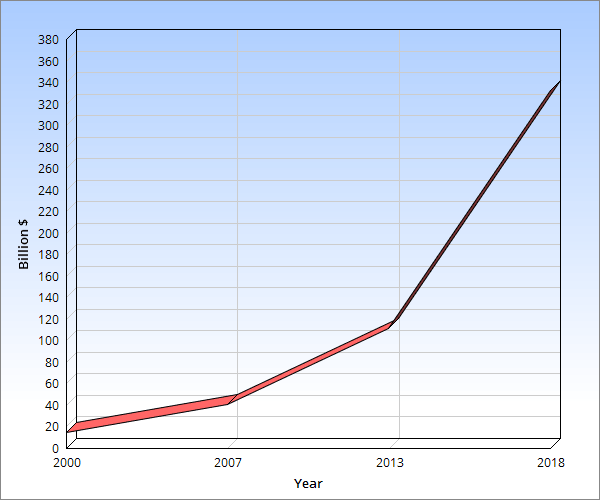
There are ethical issues surrounding the comparative research on newer therapies for a dangerous disease like cancer, particularly the prospective research, which generally stem from the fact that exposing study participants to increased risk with experimental therapies may not actually be counterbalanced by clinical benefit. In comparative research, participants may, for example, be harmed by receiving a placebo instead of an active treatment or, more commonly, participants stand the chance of receiving an experimental cancer therapy that will eventually turn out to be inferior to the best usual therapy available to patients. This is ethically problematic, given the recognized ethical principle that patients should receive the best proven standard of care whenever feasible.
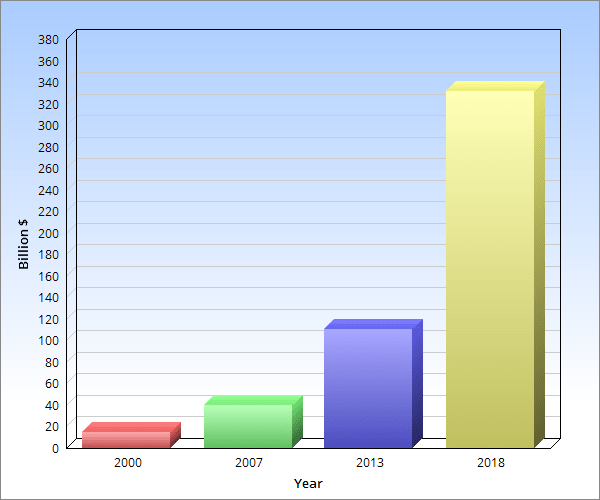
Associations around the Globe:
- Center of Molecular Immunology (Centro de Inmunología Molecular), CIM, Cuba
- Child Cancer Foundation, New Zealand
- The Children's Cancer Center of Lebanon, Lebanon
- European CanCer Organization (ECCO), Belgium
- Japan Chernobyl Foundation (JCF), Japan
- The Cancer Epigenetics Society (CES), Austria
- Japanese Cancer Association, Japan
- Japanese Foundation for Cancer Research (JFCR), Japan
- Jeremy's Circle, Israel
- European Society for Medical Oncology (ESMO), Switzerland
- European Society of Gynaecological Oncology, Switzerland
- European Institute of Oncology (Italian: Istituto Europeo di Oncologia, IEO), Italy
- Singapore Cancer Society (SCS), Singapore
- Swiss Cancer Centre, Switzerland
- Nastaran Center for Cancer Prevention (NCCP), Iran
- National Cancer Institute of Egypt, Egypt
- Neuroblastoma Society, UK
- Society of Surgical Oncology, USA
- The Association of Breast Surgery (ABS), UK
- American Brain Tumor Association, USA
- BASO ~ The Association for Cancer Surgery, UK
- German Brain Tumor Association, Germany
- Friedrich Miescher Institute for Biomedical Research (FMI), Switzerland
- Middle East Cancer Consortium (MECC), United States, Cyprus, Egypt, Israel, Jordan, the Palestinian Authority, and Turkey
- Manchester Cancer Research Centre (MCRC), England
- Cancer Research UK, UK
- Toufoula, Lebanon
- Uganda Cancer Institute (UCI), Uganda
- Union for International Cancer Control (UICC), Switzerland
- The Patients Association, UK
- American Academy of Hospice and Palliative Medicine (AAHPM), USA
- American Board of Hospice and Palliative Medicine (ABHPM), USA
- The Canadian Hospice Palliative Care Association (CHPCA), Canada
- Caring Connections, UK; Center to Advance Palliative Care (CAPC), USA
- European Association for Palliative Care, Spain
- European Organization for Research and Treatment of Cancer (EORTC), Belgium
- National Hospice and Palliative Care Organization (NHPCO), USA
- Hospice and Palliative Nurses Association (HPNA), USA
- https://www.bccresearch.com/market-research/healthcare/cancer-therapies-market-hlc027b.html
- http://www.meetingsint.com/conferences/cancertherapy
- https://www.journals.elsevier.com/cancer-treatment-reviews/recent-articles
- https://www.peertechz.com/journals/global-journal-of-cancer-therapy/aims-and-scope
- Oncology Nursing
- Surgery
- Chemotherapy
- Hormonal Therapy
- Suicide Gene Therapy
- Radiation Therapy
- Molecular Targeted Therapy
- Immunotherapy
- Stem Cell Transplant
- Regenerative Medicine
- Gastric Cancer and Japan
- Can Cannabis Cure Cancer?
- Big Data Analytics
- Journal of Clinical and Experimental Oncology
- Clinical Oncology & Case Report
9 Organizing Committee Members
18 Renowned Speakers
Jonathan Sprent
Professor
Garvan Institute of Medical Research
Australia
Hong Qin
Toni Stephenson Lymphoma Center
USA
Stewart Sell
Professor
University of Pittsburgh
USA
Nick Kostovic
Department of Energy
USA
Manikonda Prakash Rao
Healthcare Consultant
International and Constitutional Laws
India
Amar Ranjan
Assistant Professor
All India Institute of Medical Sciences
India
Ippei Sakamaki
Lecturer
University of Toyama
Japan
Peter John Wookey
University of Melbourne
Australia
Songnan Zhou
National Taiwan University Hospital
Taiwan
Gregory Lee
University of British Columbia
Canada
Jin-Mei Lai
National Taiwan University
Taiwan
Chi-Ying Huang
National Yang Ming University
Taiwan
Leung KN
China
Long-ping Wen
University of Science & Technology of China
China
Lisa Oliver Vallette
University of Nantes
France
Veronica Ponce-Castaneda
National Autonomous University of Mexico
Mexico
Francois Vallette
University of Nantes
France
Juana Vera Vera
United States and Canadian Academy of Pathology
Peru

